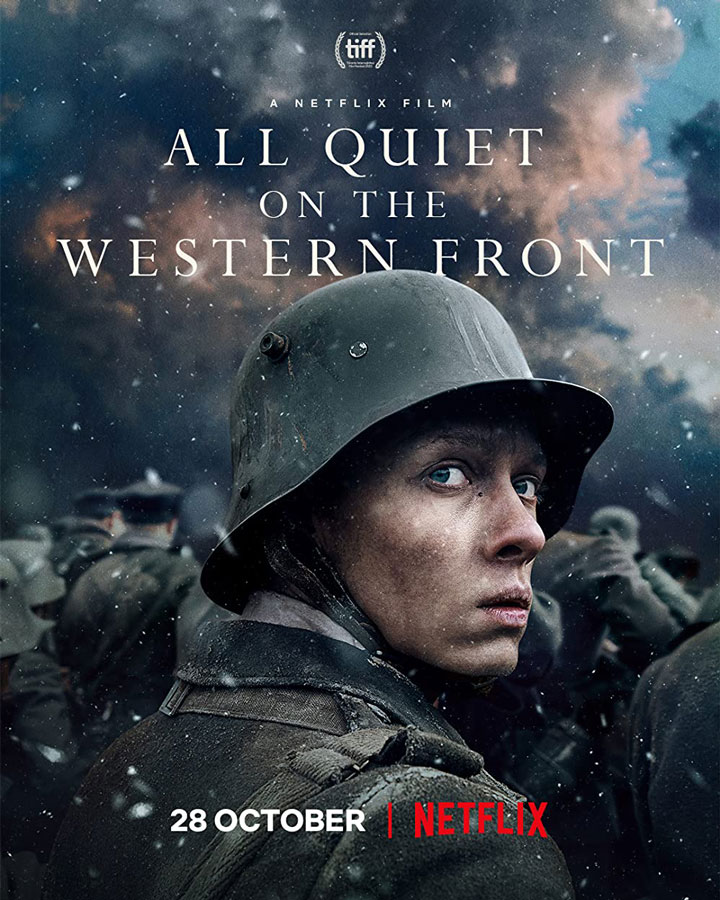‘All Quiet on the Western Front’ reminds viewer of beautifully tragic lesson
December 15, 2022
Original Author of “All Quiet on the Western Front” Erich Maria Remarque states in the opening of the book, “This book is neither an accusation nor a confession, and least of all an adventure, for death is not an adventure for those who stand face to face with it,” a quote that rings true throughout the whole novel.
Netflix’s version based on the book directed by Edward Berger and rated R, “All Quiet on the Western Front” (originally entitled “Im Westen nichts Neues”) debuted on Netflix worldwide on Oct. 28, 2022 and follows the overall morals of the original anti-war novel, but it falls short on truly reaching the original book’s storytelling.
It’s 1917, and 17-year-old Paul Baumer (played by Felix Kammerer) has been enlisted into the Imperial German Army. Coming from a country which has glorified the First World War, Paul arrives to find the Western Front a horrible landscape where the shelling never stops. As the war goes on and on, Paul watches as friends all fall around him, a disturbingly grim view during a charge, witnesses a horrible gas attack, and slowly questions, what is the point of war? The film covers Paul’s first day on the front in 1917, before cutting towards the last four days of World War I, while also adding a side plot showing German and French diplomats negotiating the Armistice, something new for this take on the classic story.
Netflix’s “All Quiet on the Western Front” provides a cinematically beautiful depiction of the First World War during 1918, however it fell very short from feeling as an adaptation. While the story-writing was great, it felt as though it cut a large portion of the original novel and story, while not adding anything new to Paul’s story, something which the previous studios who adapted this work (Universal Studios in 1930, and again by ITC Entertainment in 1979) did much better by focusing mostly on the novel. It also felt that the story had overly-fast pacing, which doesn’t really fit the long painful grind of the war, and prevented the story from truly showing Paul’s loss of innocence. While the story is good, it feels like a slight betrayal to the original book to hold its title.
However, I still cannot deny that the film is beautifully produced, as the film’s Director of Photography James Friend created several beuatiful scenes that allow the viewer to feel immersed into the film via using remarkable camera angles and special effects. Had this film used this ability with the original story, I feel it could have been one of the greatest films of 2022, especially with the new relevance of the war in Ukraine. While I do recommend taking the time to watch the 2022 adaptation, I feel as though the story is much more properly shown in the earlier adaptations.







